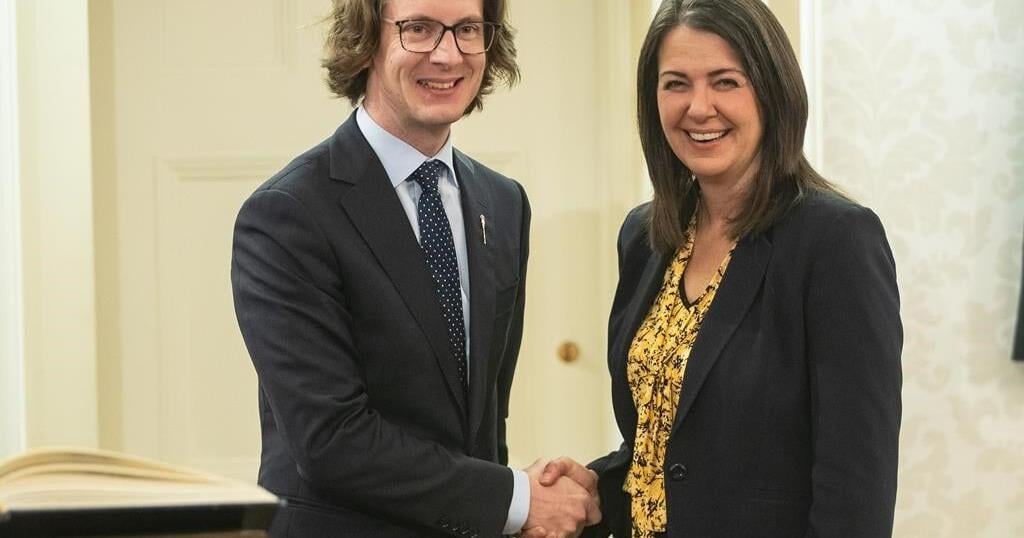EDMONTON – The Alberta government is making changes to strengthen privacy rules, including a ban on public bodies such as schools and municipalities selling private information.
Technology Minister Nate Glubish says while the province and other public bodies in Alberta are not believed to be selling such information, the bill would make clear it is prohibited.
“It was important to me to codify that into law so that Albertans knew for sure that no government ever could,” Glubish told reporters Wednesday before introducing one of two bills that, if passed, would replace the existing Freedom of Information and Protection of Privacy Act.
Glubish’s bill is also aimed at strengthening rules and increasing penalties to ensure there are clear procedures for collecting and disseminating private information.
The act increases fines to a maximum of $750,000 for anyone who knowingly breaks rules regarding personal information.
The bill clarifies when and how information is shared with public bodies, which include provincial and municipal governments, schools and police. Albertans would also be notified if personal data is processed through an automated system.
There would also be an online privacy portal so residents can see when, how and for what purpose their records are accessed. It’s to include data like vehicle registrations and medical records.
Albertans would also be able to file a privacy complaint if they believe their info has been leaked.
The second bill, sponsored by Service Alberta Minister Dale Nally, aims to streamline processes to give Albertans access to documents faster and more effectively through freedom of information rules.
Officials said the act would better define cabinet confidentiality and allow public bodies to proactively disclose information.
The bill would not allow the release of records subject to cabinet confidence or legal privilege, such as communications between cabinet members and political staff. The bill does not define who political staff are.
Asked why Albertans can’t request those communications, which are often part of crafting government policy, Nally said freedom of information is about accessing official documents.
“This is about the public’s right to access government records. If it’s a political conversation, then that’s not going to apply,” he said.
“If there’s a department official on the email, then that could fall under (freedom of information rules),” he said. “But if it’s just a political conversation, that does not constitute a government record.”
Opposition NDP justice critic Irfan Sabir said Alberta’s government hasn’t always been transparent with information, noting freedom of information requests can take a long time to process and often come back with unnecessary redactions.
The exemption could be used to hide information, he said.
Sabir added that when his party was in government, freedom of information requests could be made for his email and schedule.
“This is a government that is infamous for the leaking government records emails, so to some extent, (this legislation) looks like it’s a bit self-serving,” he told reporters.
Nally said the changes would not make it easier for the government to keep things secret, but modernize current legislation.
Glubish said splitting the Freedom of Information and Protection of Privacy Act into two new bills makes revising the legislation easier down the road.
“We can ensure that as technology continues to evolve and if amendments are required to strengthen our privacy protections for Albertans, we can be more nimble and focus exclusively on privacy and vice versa with access to information,” he said.
The bill is expected to come into force this spring.
This report by The Canadian Press was first published Nov. 6, 2024.
